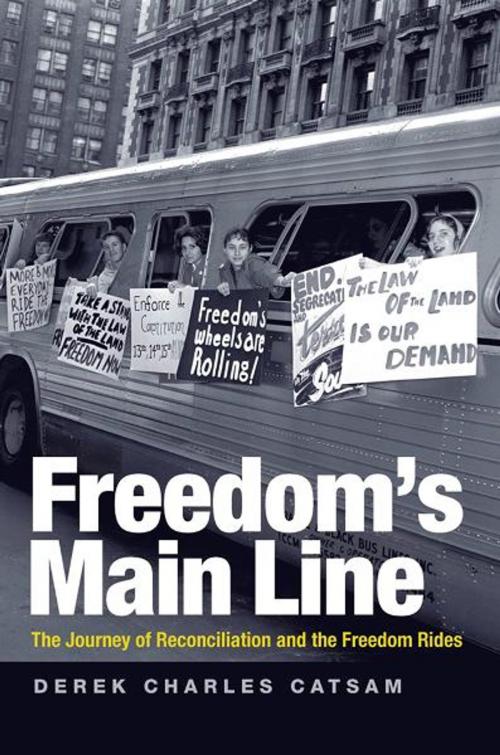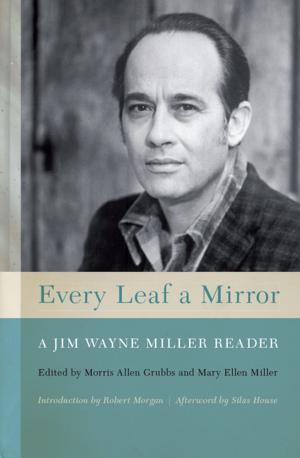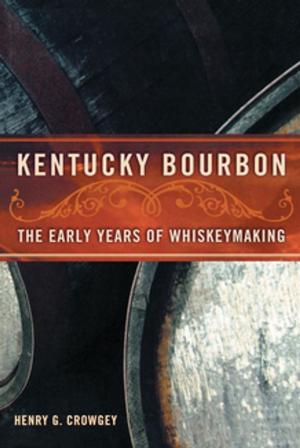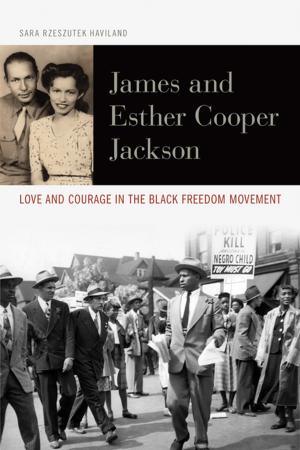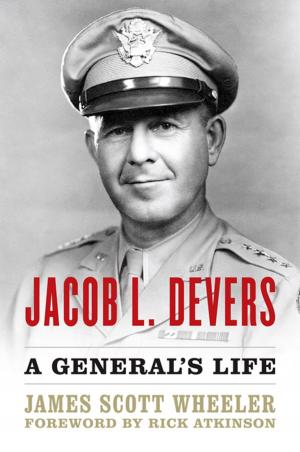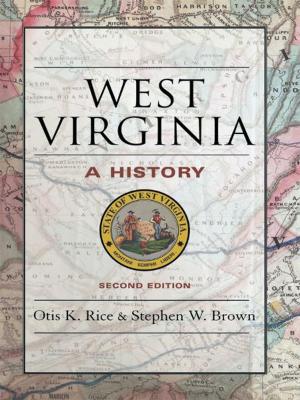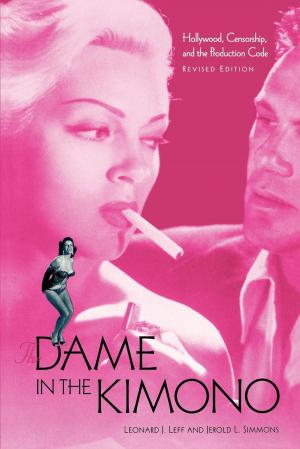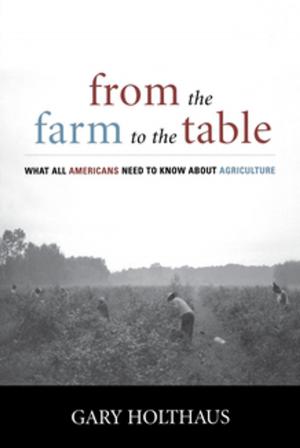Freedom's Main Line
The Journey of Reconciliation and the Freedom Rides
Nonfiction, Social & Cultural Studies, Social Science, Cultural Studies, African-American Studies, History, Americas, United States, 20th Century| Author: | Derek Charles Catsam | ISBN: | 9780813138862 |
| Publisher: | The University Press of Kentucky | Publication: | June 30, 2009 |
| Imprint: | The University Press of Kentucky | Language: | English |
| Author: | Derek Charles Catsam |
| ISBN: | 9780813138862 |
| Publisher: | The University Press of Kentucky |
| Publication: | June 30, 2009 |
| Imprint: | The University Press of Kentucky |
| Language: | English |
Black Americans in the Jim Crow South could not escape the grim reality of racial segregation, whether enforced by law or by custom. In Freedom's Main Line: The Journey of Reconciliation and the Freedom Rides, author Derek Charles Catsam shows that courtrooms, classrooms, and cemeteries were not the only front lines in African Americans' prolonged struggle for basic civil rights. Buses, trains, and other modes of public transportation provided the perfect means for civil rights activists to protest the second-class citizenship of African Americans, bringing the reality of the violence of segregation into the consciousness of America and the world. In 1947, nearly a decade before the Supreme Court voided school segregation in Brown v. Board of Education, sixteen black and white activists embarked on a four-state bus tour, called the Journey of Reconciliation, to challenge discrimination in busing and other forms of public transportation. Although the Journey drew little national attention, it set the stage for the more timely and influential 1961 Freedom Rides. After the Supreme Court's 1960 ruling in Boynton v. Virginia that segregated public transportation violated the Interstate Commerce Act, the Congress of Racial Equality (CORE) and other civil rights groups organized the Freedom Rides to test the enforcement of the ruling in buses and bus terminals across the South. Their goal was simple: "to make bus desegregation," as a CORE press release put it, "a reality instead of merely an approved legal doctrine." Freedom's Main Line argues that the Freedom Rides, a turning point in the Civil Rights Movement, were a logical, natural evolution of such earlier efforts as the Journey of Reconciliation, their organizers following models provided by previous challenges to segregation and relying on the principles of nonviolence so common in the larger movement. The impact of the Freedom Rides, however, was unprecedented, fixing the issue of civil rights in the national consciousness. Later activists were often dubbed Freedom Riders even if they never set foot on a bus. With challenges to segregated transportation as his point of departure, Catsam chronicles black Americans' long journey toward increased civil rights. Freedom's Main Line tells the story of bold incursions into the heart of institutional discrimination, journeys undertaken by heroic individuals who forced racial injustice into the national and international spotlight and helped pave the way for the landmark Civil Rights Act of 1964.
Black Americans in the Jim Crow South could not escape the grim reality of racial segregation, whether enforced by law or by custom. In Freedom's Main Line: The Journey of Reconciliation and the Freedom Rides, author Derek Charles Catsam shows that courtrooms, classrooms, and cemeteries were not the only front lines in African Americans' prolonged struggle for basic civil rights. Buses, trains, and other modes of public transportation provided the perfect means for civil rights activists to protest the second-class citizenship of African Americans, bringing the reality of the violence of segregation into the consciousness of America and the world. In 1947, nearly a decade before the Supreme Court voided school segregation in Brown v. Board of Education, sixteen black and white activists embarked on a four-state bus tour, called the Journey of Reconciliation, to challenge discrimination in busing and other forms of public transportation. Although the Journey drew little national attention, it set the stage for the more timely and influential 1961 Freedom Rides. After the Supreme Court's 1960 ruling in Boynton v. Virginia that segregated public transportation violated the Interstate Commerce Act, the Congress of Racial Equality (CORE) and other civil rights groups organized the Freedom Rides to test the enforcement of the ruling in buses and bus terminals across the South. Their goal was simple: "to make bus desegregation," as a CORE press release put it, "a reality instead of merely an approved legal doctrine." Freedom's Main Line argues that the Freedom Rides, a turning point in the Civil Rights Movement, were a logical, natural evolution of such earlier efforts as the Journey of Reconciliation, their organizers following models provided by previous challenges to segregation and relying on the principles of nonviolence so common in the larger movement. The impact of the Freedom Rides, however, was unprecedented, fixing the issue of civil rights in the national consciousness. Later activists were often dubbed Freedom Riders even if they never set foot on a bus. With challenges to segregated transportation as his point of departure, Catsam chronicles black Americans' long journey toward increased civil rights. Freedom's Main Line tells the story of bold incursions into the heart of institutional discrimination, journeys undertaken by heroic individuals who forced racial injustice into the national and international spotlight and helped pave the way for the landmark Civil Rights Act of 1964.
